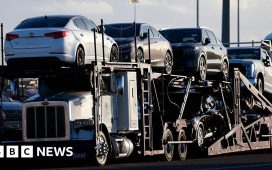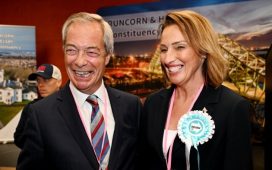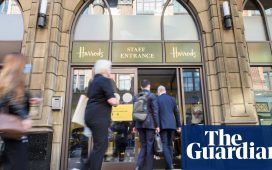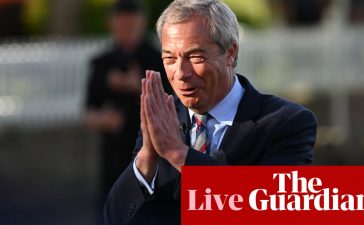No 10 has denied Rishi Sunak will scrap the winter fuel allowance for most elderly people, after reports that he was looking at means testing the allowance.
The prime minister was said to be considering cutting back on the allowances of £250 to £600 each winter in order to maintain the triple lock for pensions.
No 10 sources said Sunak was not looking at scrapping the allowance as a policy and that he had not received advice on it. “That is not something we are going to do,” a government spokesperson said.
Nevertheless, government sources told Sky News that he had been looking at the idea: “Rishi understands the politics of the triple lock, although he thinks it’s far from fair from an intergenerational point of view, so he’s trying to redress that a little bit.”
The broadcaster reported that officials had drawn up options including removing winter fuel payments for those not on pension credit.
Rachel Reeves, the shadow chancellor, said ministers should “not be breaking those commitments” that they made to older people in the last election. She said Labour would be bringing in a proper windfall tax on oil and gas companies that would fund help for elderly and vulnerable people with their energy bills.
Wendy Chamberlain, the Liberal Democrat work and pensions spokesperson, said: “Scrapping the winter fuel allowance would be a slap in the face for pensioners facing soaring energy bills this winter.
“Rishi Sunak must be living on another planet if he thinks this is the answer to the country’s problems. Pensioners have worked hard and paid their taxes all their lives. They shouldn’t be made to pay the price for the Conservative party crashing the economy.”
Simon Francis, coordinator of the End Fuel Poverty Coalition, said that any such move would be a “death sentence” for pensioners.
He said: “Last year alone we saw around 5,000 excess winter deaths caused by living in cold, damp homes. Many more saw their health conditions deteriorate. Now Rishi Sunak wants to condemn more pensioners to live in these conditions.
“Energy bills are likely to stay high for the next two years according to expert predictions so this proposal – even if it only starts next year – is highly dangerous.”
Sunak is casting around for savings to be made from public spending before next year’s election as he comes under pressure from his party to offer tax cuts.
He is considering scrapping the Birmingham to Manchester leg of the HS2 railway line and looking at keeping benefit increases down below the level of inflation.
Several government sources said they did not think Sunak would go for the option of reducing pensioner allowances just before an election when energy bills are still high.
But the prime minister is mulling ways to be able to afford tax cuts such as a reduction in income tax, capital gains or inheritance tax before next year, which he may gesture towards in his party conference speech in Manchester next week.
after newsletter promotion
At the annual gathering, Grant Shapps, the defence secretary, is expected to unveil a long-term investment worth about £4bn in the three-country Aukus nuclear powered submarine project in his keynote speech on Sunday, defence sources said.
The spending pledge is likely to be presented as a boost for jobs at the BAE Systems dockyard in Barrow, where jobs are expected to increase from 11,000 to 16,000, and Rolls-Royce in Derby, where the nuclear reactors are built.
The UK and the US have agreed to help Australia build its own nuclear-powered attack submarines based on a British design, but while construction is not expected to start until the end of the decade, experts and Labour say the industrial base needs to be developed now.
Sunak is also expected to make pro-motoring policies a cornerstone of his conference announcements, and continue to promote his decision to scale back on net zero targets.
On Friday, Philip Dunne, a Tory MP and former minister who chairs the environmental audit committee, wrote to the prime minister describing the net zero moves as “disappointing”.
He said: “It concerns the committee that these announcements were not accompanied with a clear plan setting out how the UK’s decarbonisation commitments are now to be met, and the committee today calls for a revised carbon budget delivery plan to be produced urgently.
“There is a high degree of consensus – in parliament and amongst the public – on the need to reduce emissions in the face of the threat of climate change. While pragmatic implementation is vital, pace must be maintained.
“In today’s letter the committee calls on the prime minister to avoid falling into the trap of presenting net zero as an all-or-nothing, binary choice. The environment and the economy are not in opposition to one another. On the contrary, green policies are a key part of sustainable growth.”










